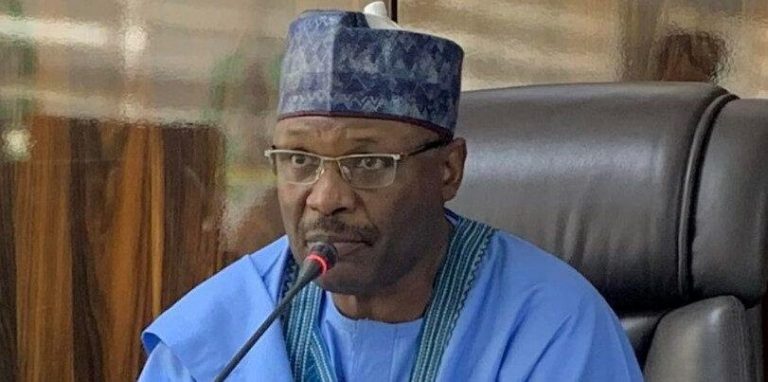
The Independent National Electoral Commission (INEC) on Saturday admitted that the February 25 presidential and National Assembly election was flawed in many areas that need immediate and long-term address.
The INEC Chairman Prof Mahmood Yakubu made the statement amid growing backlash over the conduct of the election, which has been described as a sham by many.
Speaking during a meeting with the Resident Electoral commissioners (RECs) held at the INEC headquarters, Abuja, Yakubu said the result of the election raises a number of issues that require immediate, medium and long-term solutions.
Register for Tekedia Mini-MBA edition 19 (Feb 9 – May 2, 2026): big discounts for early bird.
Tekedia AI in Business Masterclass opens registrations.
Join Tekedia Capital Syndicate and co-invest in great global startups.
Register for Tekedia AI Lab: From Technical Design to Deployment (next edition begins Jan 24 2026).
“It is imperative to review performance and assess preparations. No doubt, last week’s national elections raised a number of issues that require immediate, medium, and long-term solutions,” he said.
“The planning for the election was painstakingly done. However, its implementation came with challenges, some of them unforeseen. The issues of logistics, election technology, behavior of some election personnel at different levels, attitude of some party agents and supporters added to the extremely challenging environment in which elections are usually held in Nigeria.”
The 2023 election has so far yielded a twist to Nigeria’s political landscape, which has been at the tight grip of the two major political parties in the country – the APC and the Peoples Democratic Party (PDP). The emergence of the Labour Party (LP), a third force party backed mainly by youths known as ‘Obi-dients’ – an acronym coined from the name of the party’s presidential flagbearer Peter Obi, threw in an upset.
Obi joined the LP in May last year from the PDP, and in less than a year, he made it the party to beat with the support of the Obi-dient movement. The former Anambra State governor, who won the youths over by his impeccable record and simple lifestyle, was projected to win the presidential election by many opinion polls.
However, INEC declared Bola Tinubu of the APC the winner of the presidential election, amid allegations of voter intimidation, result manipulation and apparent failure of the Commission to transmit the results electronically from polling units to its Results Viewing Portal (IReV), in line with Nigeria’s electoral law.
Those have triggered heavy backlash and condemnation from both observers and Nigeria’s electorates. The European Union Election Observer Mission (EU EOM) said the situation has mitigated trust and confidence in INEC.
Against this backdrop, Nigerian electorates say they have no confidence in the Commission to conduct free and fair election on March 11, when governorship and state house of assembly election will hold.
But Yakubu said that a lot of lessons had been learnt and of immediate concern to the commission is how the identified challenges can be addressed ahead of the next Saturday’s governorship and state houses of assembly elections in 28 states.
He also said the commission would soon be conducting supplementary elections in 46 Senatorial and Federal Constituencies.



